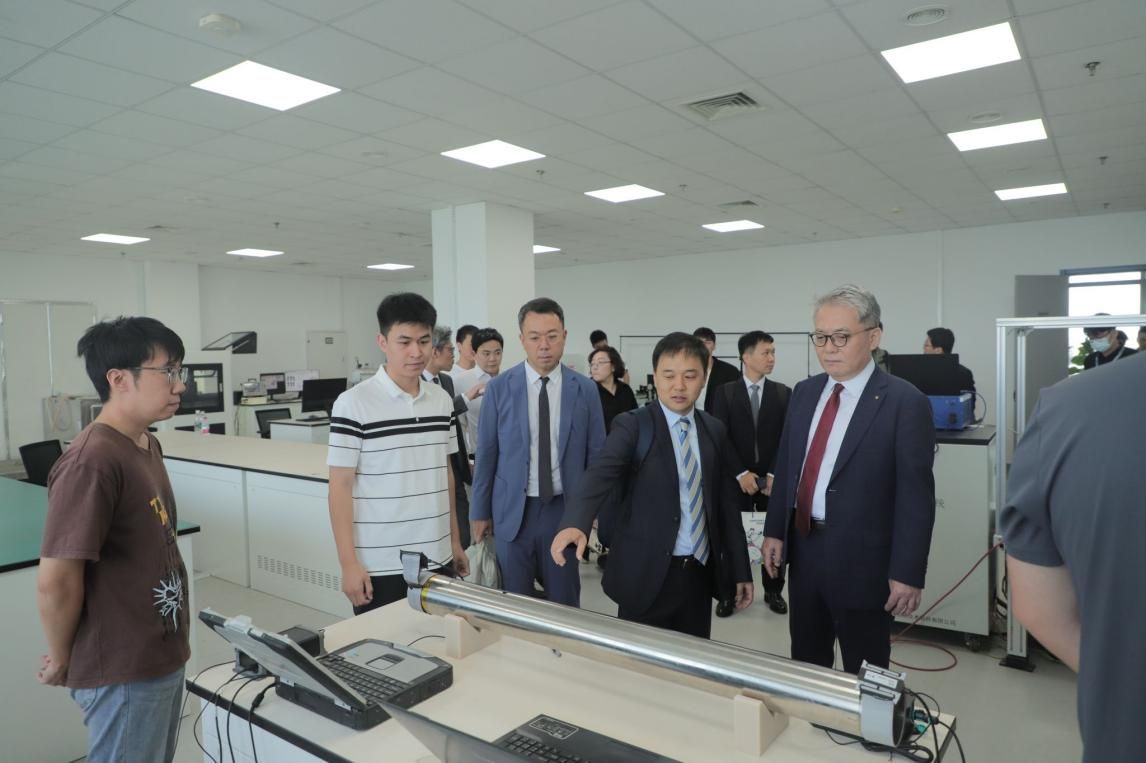On August 21, a delegation from Hansung University in South Korea, led by President Lee Changwon, visited BJUT. The delegation was warmly welcomed by Jiang Zeting, Secretary of the CPC BJUT Committee. Also in attendance was Wang Wei, Vice President of BJUT, along with representatives from the International Office, the Technology Transfer Center, the College of Information Science and Technology, and the College of Art and Design at BJUT.
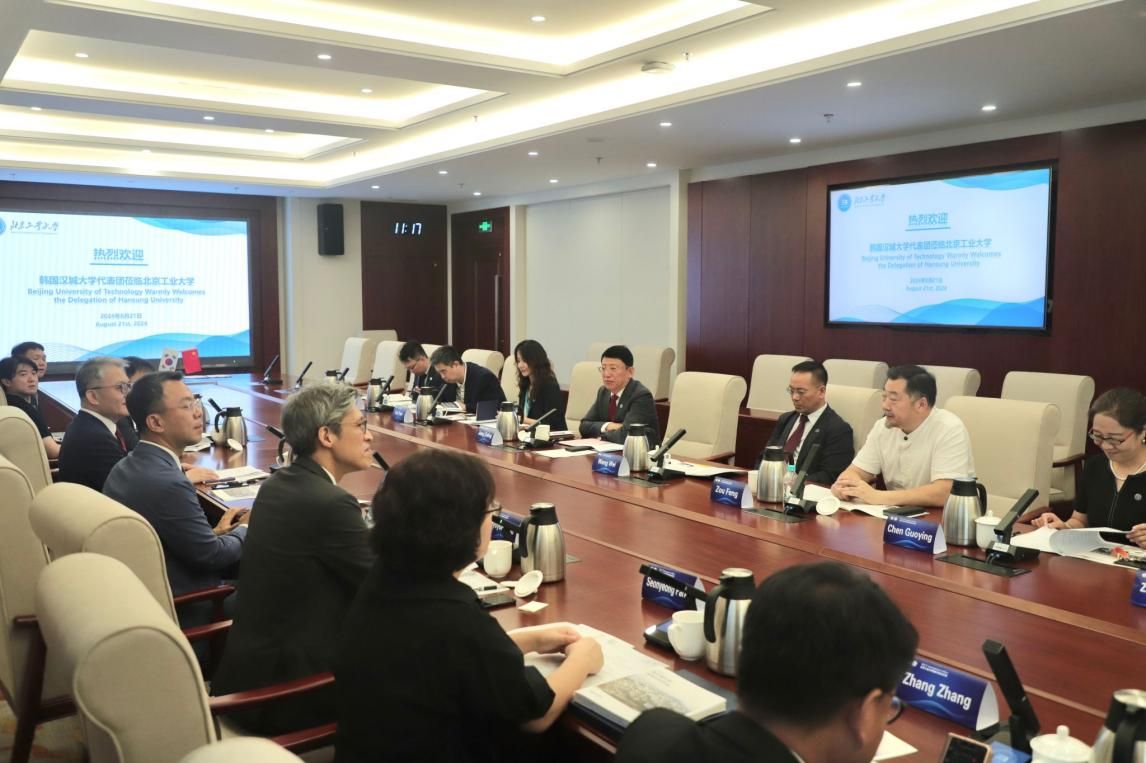
Jiang Zeting warmly welcomed the Hansung University delegation and introduced BJUT's development. He highlighted the University's commitment to its mission of "Serving the Capital City and the Country with Science and Technology", with a focus on key areas such as carbon neutrality, urban renewal, artificial intelligence, and high-end think tanks. He added that BJUT has contributed to the high-quality development of Beijing as "four centers", especially centers for technology and innovation and exchange.
Jiang Zeting emphasized the vital role that world-class universities and globally renowned enterprises play in advancing technological innovation and enhancing national strength. Noting that 2024 marks the 32nd anniversary of diplomatic relations between China and South Korea, and reflecting on last year's successful meeting between the two countries' leaders, he stressed the mutual dedication to deepening friendship and enhancing cooperation. He expressed the hope that the two universities can inject new vitality into China-South Korea relations by bolstering their cooperation in future technologies, enhancing their exchanges in education, technology, and talent, and pursuing enterprise-university-research collaboration.
Lee Changwon expressed his pleasure of visiting BJUT and gratitude for the warm reception. He highlighted how Hansung University, a private comprehensive university, has grown into a leading education and research institution over more than 50 years of development. Noting the strong parallels in the academic disciplines of the two universities, he pointed out that both institutions have, in recent years, increasingly strengthened their capacity for technological innovation and the transfer of research outcomes. He hoped this exchange would mark a new start for further practical cooperation between enterprises, universities, and research institutes. The goal, he said, is to collaborate on academic projects in fields such as artificial intelligence, software development, information security, and design, opening a new chapter in joint development and contributing to China-South Korea cooperation in science, technology, and education.
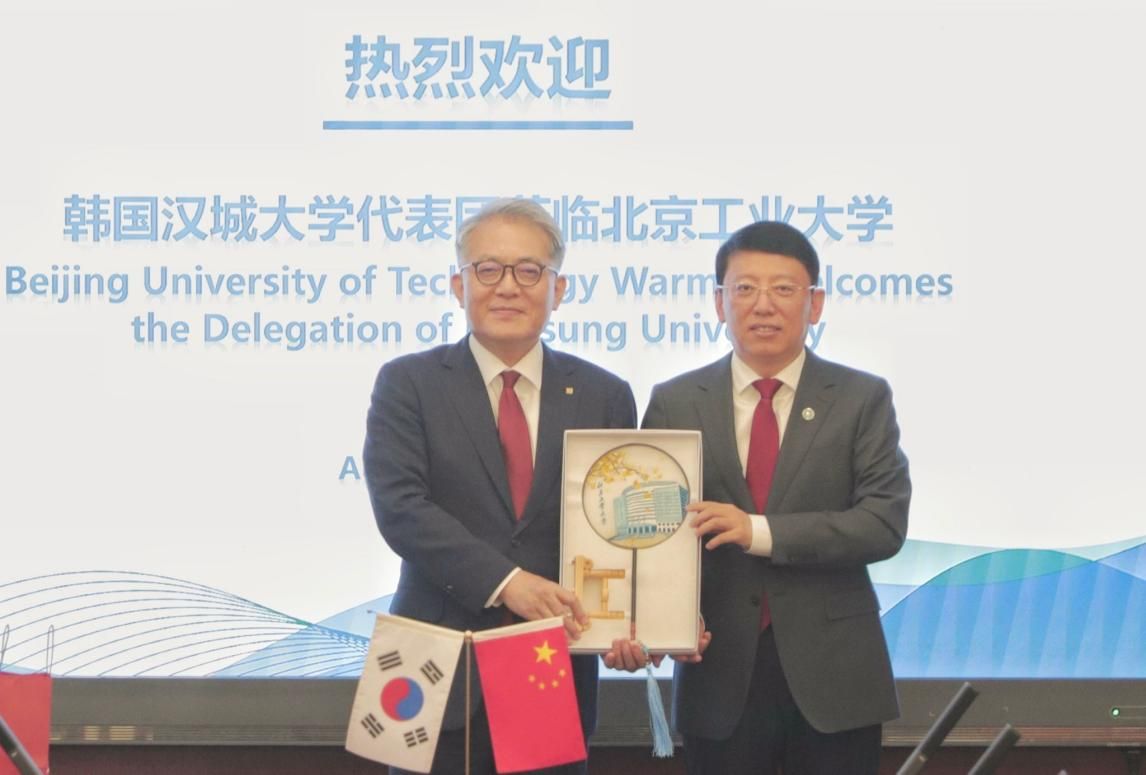
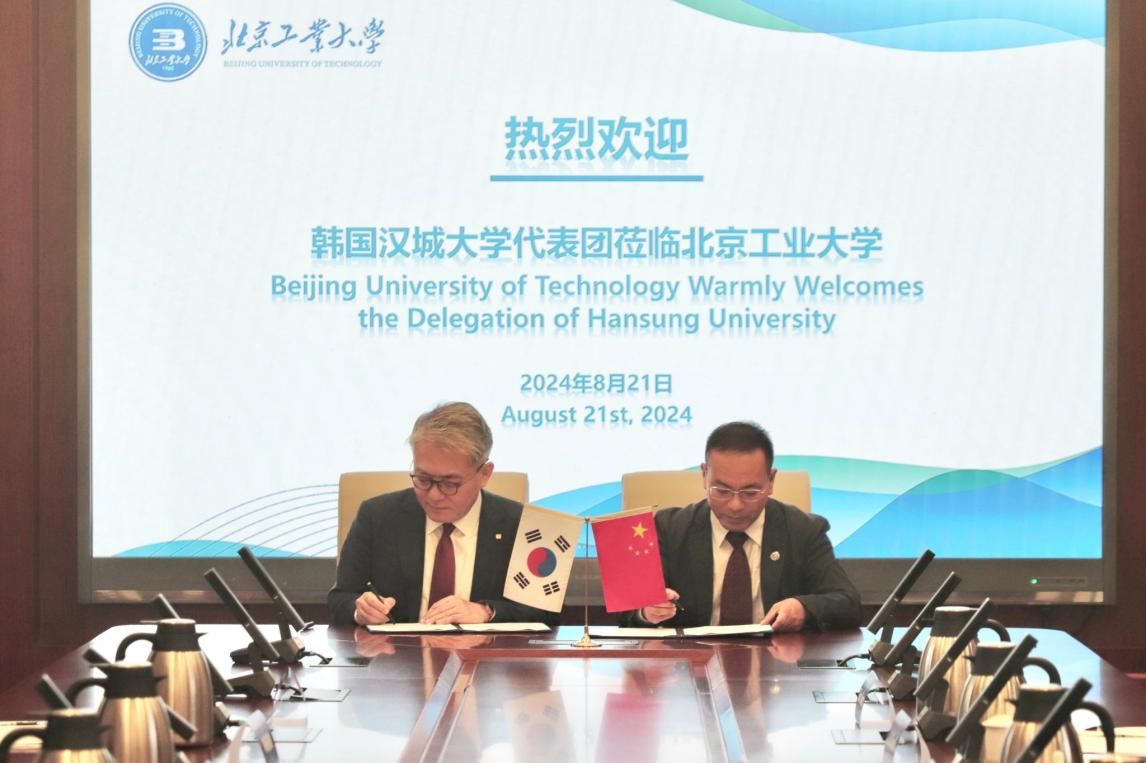
During themeeting, the two universities signed a memorandum of understanding and exchanged gifts. Representatives from the Korean companies also introduced their core products and innovative technologies.
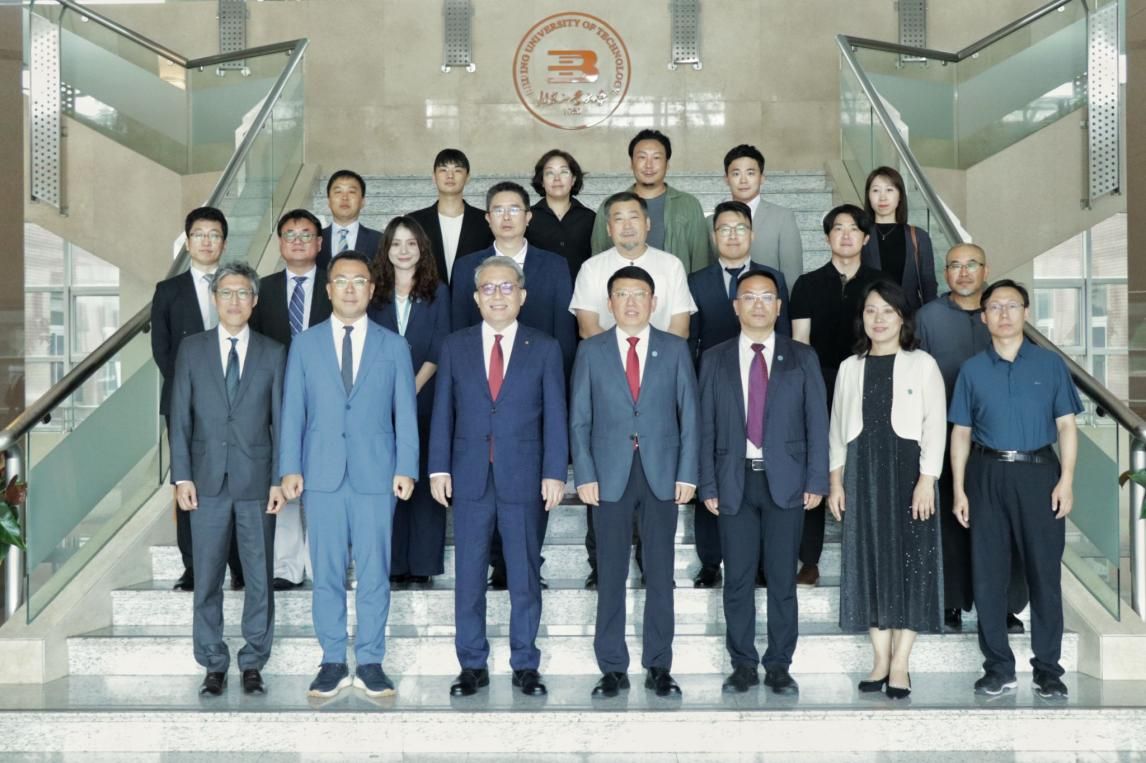
During the visit, the delegation visited BJUT's Shan-He-Wan-Gu Innovation Zone, the Folk Arts and Crafts Museum, the Beijing Institute of Artificial Intelligence, the 3D Printing Center, and the National Engineering Laboratory for Industrial Big-Data Application Technology. They also engaged in discussions on cooperation between enterprises, universities, and research institutes, and representatives from both sides signed a cooperation agreement.
